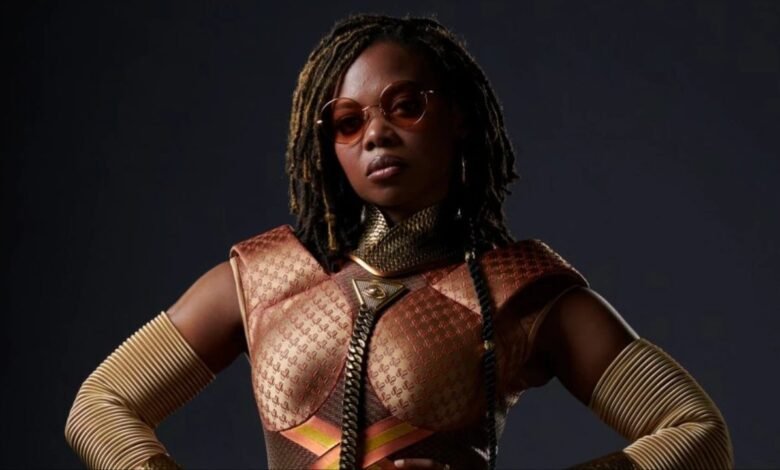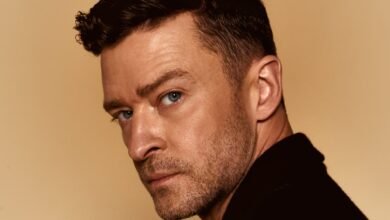The Boys Season 4: Is Homelander’s Latest Rival More Lex Luthor or Ozymandias?

Warning: this article contains spoilers for the first three episodes of The Boys: Season 4!
The Boys kicked off its fourth season on Prime Video with a three-episode premiere that introduces a major new character in this seedy world of corporate-owned superheroes. It’s here we meet Susan Heyward’s Sister Sage, known to be the smartest person in the world. And with Antony Starr’s Homelander under her thumb, she’s also become the most dangerous person in the world.
How does the debut of Sister Sage change the playing field? What does it mean for Homelander to come face-to-face with his own Lex Luthor? To learn more, IGN spoke with showrunner Eric Kripke. Read on to learn more about the Homelander/Sister Sage alliance in Season 4.
Homelander Meets His Lex Luthor
Sister Sage marks a turning point for the series. Past seasons focused on antagonists who present a physical threat to Karl Urban’s Billy Butcher and the team, whether Homelander himself, Jensen Ackles’ Soldier Boy or Claudia Doumit’s Victoria Neuman. Sage is the first villain whose powers are entirely mental rather than physical. As we’ve already seen, that hardly makes her less dangerous.
Kripke tells IGN that Sage presented a special challenge to the writers in Season 4. It turns out that it’s really hard to convincingly write a character who’s smarter than everyone else.
“It’s actually a lot harder to write because the challenge of writing the world’s smartest person means that we have to be smart as writers, and then that is sometimes a very tall order,” Kripke says. “She’s very challenging because every single thing she does, she’s eight moves ahead and she’s brilliant. Getting yourself in that head space is really hard because we’re not nearly as smart as her. I’ll tell you, writing dumb characters is much easier than writing smart characters.”
That intelligence also made casting the role a difficult proposition. According to Kripke, Heyward had two qualities that made her the right fit for this highly intelligent yet psychologically damaged character.
“I needed Sage to have two things, one of which is just blinding intelligence,” Kripke says. “You just look at that person and say, ‘Oh, wow. Yeah, they’re really smart.’ Susan is, that’s all for real. Then you needed someone who could really handle the vulnerability and the pain just under the surface, and so that you could sort of understand why she’s acting the way she’s acting. Susan, in the right moments, can really make you feel for Sage. It’s not a spoiler to say that she has a speech in Episode 6 that breaks my heart a little bit, and she has to be able to be cold and calculating, but also reveal the real person underneath.”

It’s no stretch to compare Sister Sage to Superman’s eternal nemesis, Lex Luthor. Homelander is the closest thing this world has to Superman, even if he completely lacks the Man of Steel’s appreciation for truth and justice. As the world’s smartest person and someone drawn into Homelander’s orbit, Sage is herself the closest thing the world has to a Lex Luthor. But unlike in the DC Universe, these two characters are united by a common cause. For now, anyway.
Kripke notes that while there are shades of Luthor to Sage, the character was also inspired by another iconic comic book super-genius, Watchmen’s Ozymandias.
“The archetype we’re really going for – there might be a little Lex Luthor – but also, Ozymandias from Watchmen,” Kripke says. “There is a superhero archetype of the world’s smartest person. Anytime there’s an archetype we haven’t used yet, we get interested in, ‘Oh, what would they be like in our world?’ That’s where she emerged from, and the fact that she would make Homelander way more dangerous, [since he’s] generally surrounded by morons.”
Kripke continues, “To have someone advising him who’s that smart really makes him much more of a threat, but it’s interesting. Once you put the world’s smartest person in the real world, you immediately get to, ‘Oh my God, they’d be miserable. It’s so miserable to be smart,’ and all she wants to do is be stupid for a little bit. Just understanding her pain, which I think is what makes her such a misanthrope.”
In case there were any doubt after these first three episodes, Sister Sage is being positioned as a major antagonist in Season 4, one capable of manipulating Homelander like no one else since Elisabeth Shue’s Madelyn Stillwell. She’s cut from the same cloth as the other heroes of the Boys universe. With heroes like these, who needs villains?
“She has her own thing going on and, look, almost all of the superheroes who present as heroes in this show are the antagonists,” Kripke says. “I think it would probably be quite a badge of honor to be considered a supervillain in that world. They probably consider Starlight a supervillain in that world, so it’s a little flipped on its head. Any of the supervillains that are actually out there in the world, if anyone remembers, were created by Homelander back in Season 1. It’s really not a show where anyone who presents as a superhero is really, actually a hero, by and large.”
The Misery of Being Homelander
Sage may be the brains to Homelander’s brawn, but these two characters share one thing in common. They’re both deeply, profoundly unhappy people. For Sage, it’s exhausting being the smartest person in a world filled with people she views as vapid idiots. For Homelander, nothing seems to fill that gaping maw of loneliness and longing that exists at the core of Vought’s most beloved hero.
It’s not as if things aren’t going Homelander’s way in Season 4. As seen in these first three episodes, he’s accomplished pretty much everything he set out to do. He has a family in the form of his son, Cameron Crovetti’s Ryan. He’s just been acquitted of murder. And he even has the highest office in the land in his grip. But for a man as damaged as Homelander, no amount of victories can bring happiness. In Season 4, he’s a superhero in the throes of a full-blown midlife crisis.
“Every season we try to dig a little deeper into every character, and Homelander is no exception,” Kripke says. “There’s one thing he’s been wanting for three seasons now. What would happen when we give it to him? The answer is, he’d be miserable. Then he’d immediately start to think, ‘Well, if I have this, I’ll be happy.’ As Sage says it very aptly, she’s like, ‘This isn’t going to make you happy either, right,’ but he’s like, ‘No, no, no. Just let’s say maybe I’ll get that,’ and spoiler alert, anything he gets isn’t going to make him happy or anything he thinks he wants isn’t going to make him happy because he’s a deep, gaping black hole of neediness and insecurity.”
Kripke explains that all of this is designed to help the viewer better understand Homelander, if not outright sympathize with him. As Kripke recently told The Hollywood Reporter, he’s befuddled by fans who view Homelander as an actual heroic character.
“Part of it is just my taste as a writer,” Kripke says. “I am not very good at writing villains. I don’t understand the notion of someone who gets up in the morning and says, ‘I’m going to do evil today.’ I just don’t think that’s how people work. Everyone thinks they’re doing the right thing, even if they’re doing horrible, horrible things. I get really interested when there’s an antagonist, I get really interested in trying to understand what makes them tick and why did they make that horrific choice. It’s not forgiving him for the choice, and it’s not condoning it, but I at least want the audience to understand it.”
Kripke continues, “I don’t want them to sympathize with Homelander – he’s a psychotic – but at least I want them to understand what is making him do the things that he does. I don’t know how you create a character that isn’t just a cartoon that doesn’t have some sort of reasoning or conflict or something going on. That’s just kind of like, I’m too anal to present a character that I can’t explain why they’re making horrible choices.”
As for what’s next for the character, Episode 3 ends with the reveal that Homelander is journeying back to the palace where it all began. Kripke teases that viewers will learn more about the character’s twisted origin story and what shaped him in upcoming episodes.
“I think it’s not a spoiler at that point to say that he really does go to the horrible place that was his home.”
The first three episodes of The Boys: Season 4 are streaming now on Prime Video. Can the Homelander/Sister Sage alliance last? Cast your vote in our poll and let us know your thoughts in the comments below.
For more on The Boys, check out IGN’s The Boys: Season 4 review and learn why Season 5 will be the show’s last.
Jesse is a mild-mannered staff writer for IGN. Allow him to lend a machete to your intellectual thicket by following @jschedeen on Twitter.




